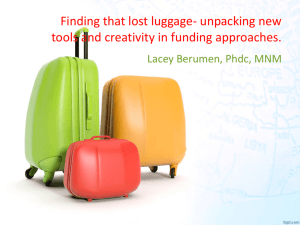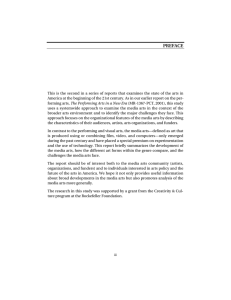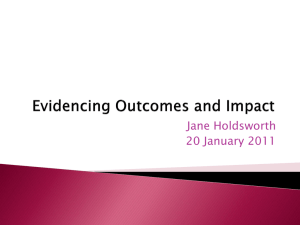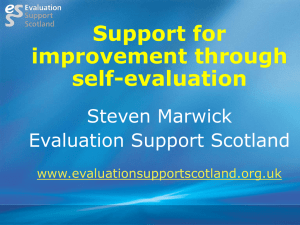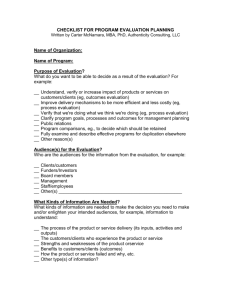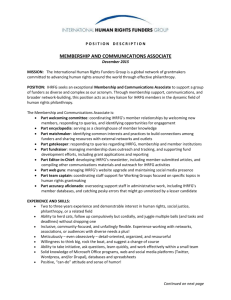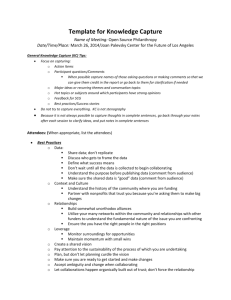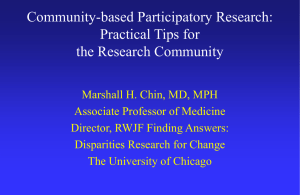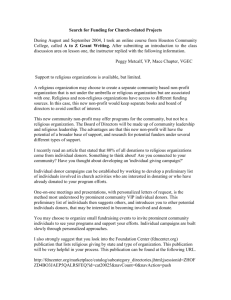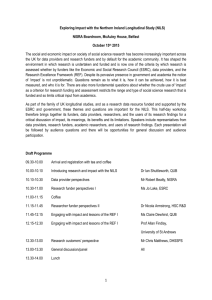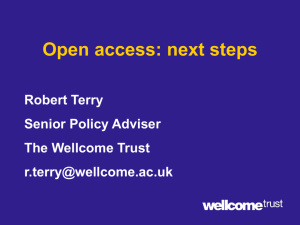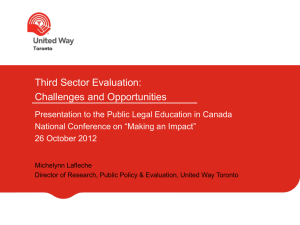Notes from break out sessions at 10th November workshop
advertisement
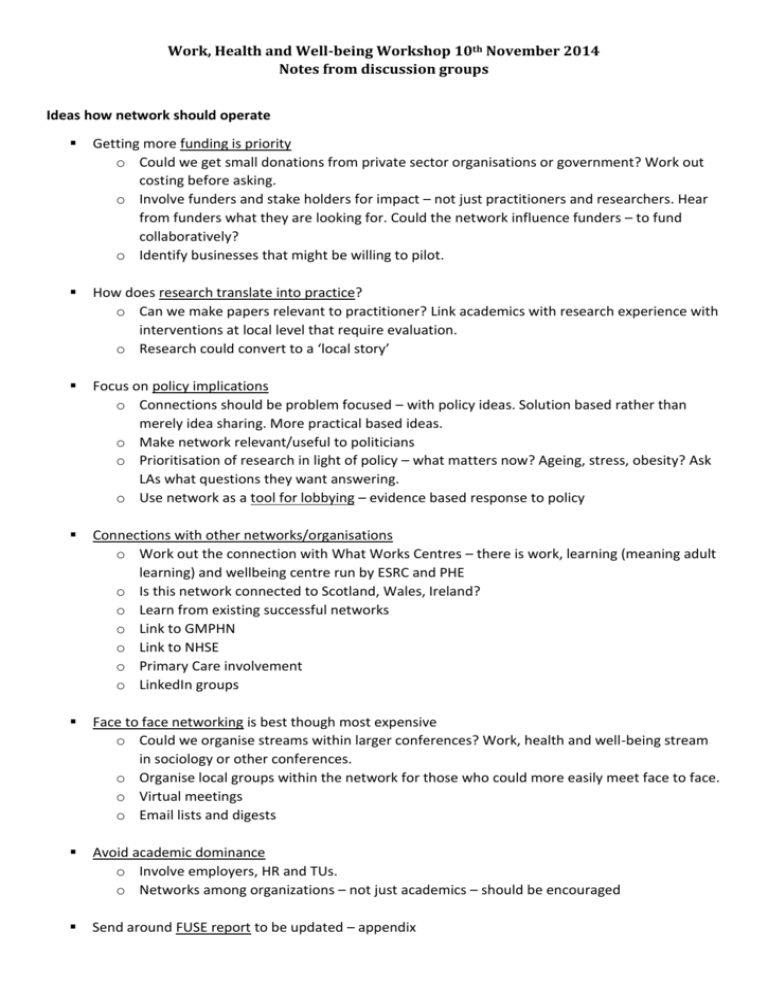
Work, Health and Well-being Workshop 10th November 2014 Notes from discussion groups Ideas how network should operate Getting more funding is priority o Could we get small donations from private sector organisations or government? Work out costing before asking. o Involve funders and stake holders for impact – not just practitioners and researchers. Hear from funders what they are looking for. Could the network influence funders – to fund collaboratively? o Identify businesses that might be willing to pilot. How does research translate into practice? o Can we make papers relevant to practitioner? Link academics with research experience with interventions at local level that require evaluation. o Research could convert to a ‘local story’ Focus on policy implications o Connections should be problem focused – with policy ideas. Solution based rather than merely idea sharing. More practical based ideas. o Make network relevant/useful to politicians o Prioritisation of research in light of policy – what matters now? Ageing, stress, obesity? Ask LAs what questions they want answering. o Use network as a tool for lobbying – evidence based response to policy Connections with other networks/organisations o Work out the connection with What Works Centres – there is work, learning (meaning adult learning) and wellbeing centre run by ESRC and PHE o Is this network connected to Scotland, Wales, Ireland? o Learn from existing successful networks o Link to GMPHN o Link to NHSE o Primary Care involvement o LinkedIn groups Face to face networking is best though most expensive o Could we organise streams within larger conferences? Work, health and well-being stream in sociology or other conferences. o Organise local groups within the network for those who could more easily meet face to face. o Virtual meetings o Email lists and digests Avoid academic dominance o Involve employers, HR and TUs. o Networks among organizations – not just academics – should be encouraged Send around FUSE report to be updated – appendix Ideas for website Make website digestible – avoid information overload Catalogue of hyperlinks to people, networks and research o Summary of research o Information about publications before they come out – latest research o Link to Data services Data o LA datasets o Information about trends – health outcomes, i.e. disease incidents by industry Updated version of FUSE report Funding information o Announcement of funding calls o Information about what funders are looking for Events o Publicise upcoming events o Film seminars and put on Youtube Interactive element o Discussion forum o Wiki system where people can request information and then answers given are available to everyone o Blog for people to upload to, e.g. a place for practitioners to write their experiences that aren’t published in peer-reviewed journals but that others could learn from (blog?) ‘Grey literature’. o ‘Would like to meet’ section for people to link with experts who could advise on work. Allow non-academics to contact academics with questions. o Database that people can upload to – Social Policy digest? Ideas for next workshop Have a specific question for the next workshop that delegates should aim to answer while there – more action based meeting Invite employers, HR and TUs
